Europe’s history is rich with tales of secret societies, from the Knights Templar to the Freemasons, each leaving indelible marks on the continent’s cities. Shrouded in mystery and intrigue, these organizations have influenced everything from political revolutions to the arts. This guide uncovers these enigmatic groups’ hidden symbols and secretive meeting places, offering a unique lens through which to explore Europe’s urban landscapes.
1. Rosslyn Chapel, Scotland
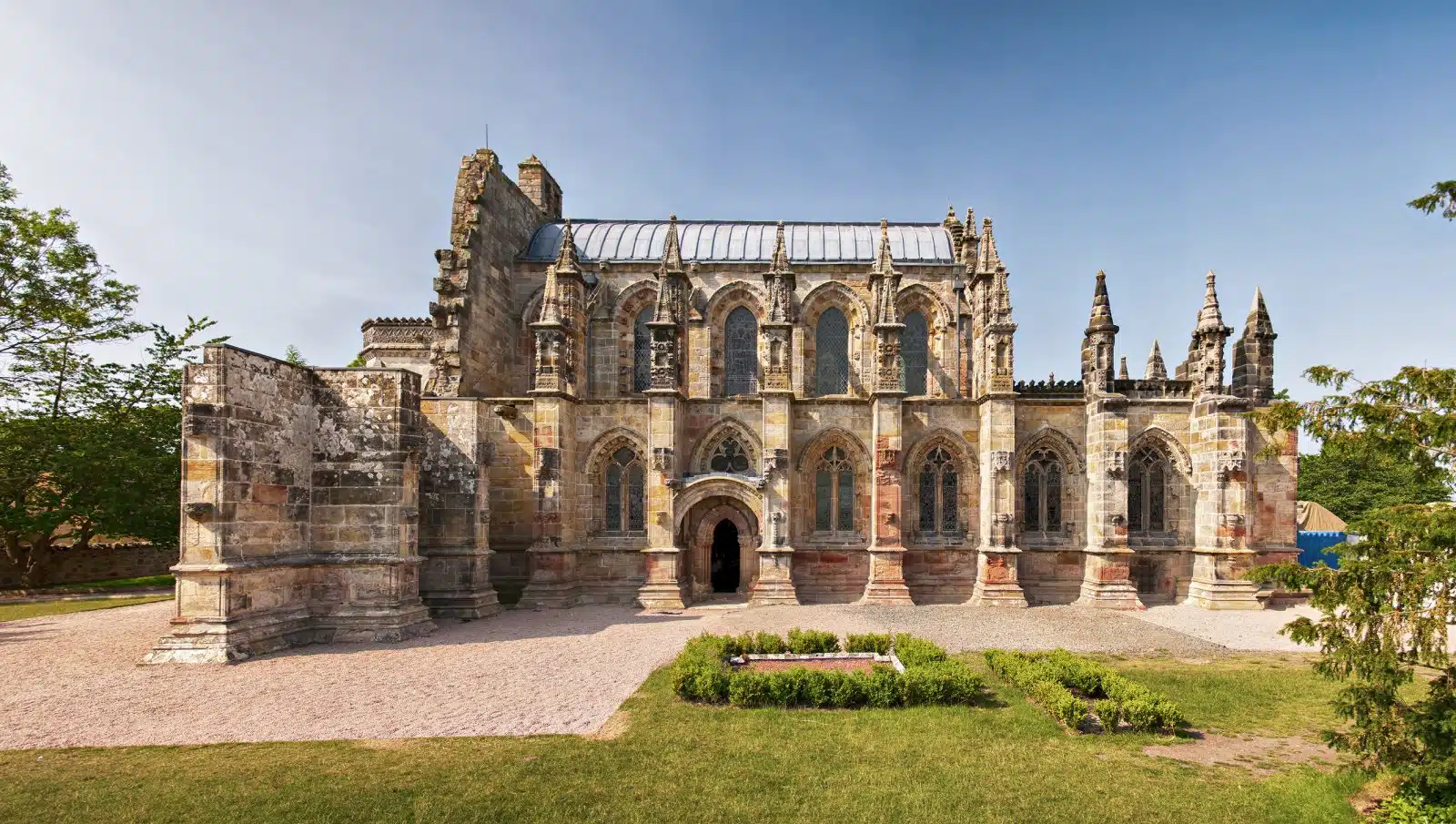
Image Credit: Shutterstock / Antony McAulay
Rosslyn Chapel, located just outside Edinburgh, Scotland, is a treasure trove of symbols and legends, many of which are linked to the Freemasons and the Knights Templar. Built in the 15th century, the chapel is adorned with carvings that some believe tell the secrets of the Templars and hold clues to the whereabouts of the Holy Grail. The intricate stonework features biblical scenes, pagan mythology, and Masonic symbols, making it a fascinating study for historians and conspiracy theorists alike.
Insider’s Tip
Look for the Apprentice Pillar, which is said to contain a hidden scroll detailing the secrets of the Templars.
When to Travel
Summer offers the best weather, but early spring and late autumn provide fewer crowds.
How to Get There
Rosslyn Chapel is a short bus ride from Edinburgh, making it an easy day trip.
2. The Masonic Temples of London, England
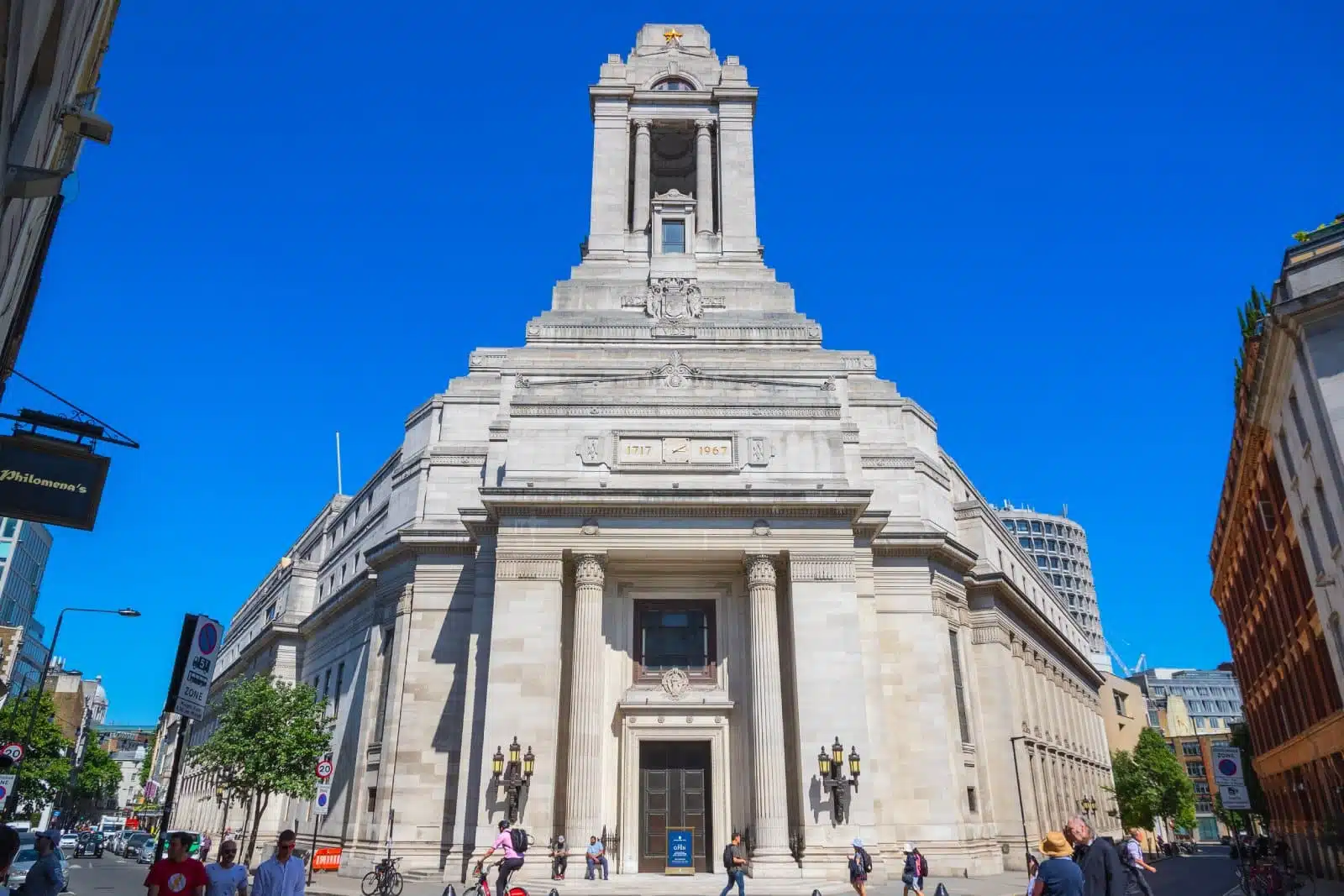
Image Credit: Shutterstock / I Wei Huang
London’s Freemasons’ Hall, the headquarters of the United Grand Lodge of England, is a stunning example of Art Deco architecture filled with Masonic symbolism. Open to the public, the building hosts a museum that explores the history of Freemasonry in England, featuring regalia, symbols, and artifacts related to this secretive society.
Insider’s Tip
Attend a guided tour to gain deeper insights into the Freemasons’ rituals and the architectural significance of the hall.
When to Travel
Year-round, though the hall hosts special open days and events that offer more in-depth experiences.
How to Get There
Freemasons ‘ Hall is located in the Covent Garden area and is easily accessible by London’s public transport.
3. The Alchemical Symbols of Prague, Czech Republic
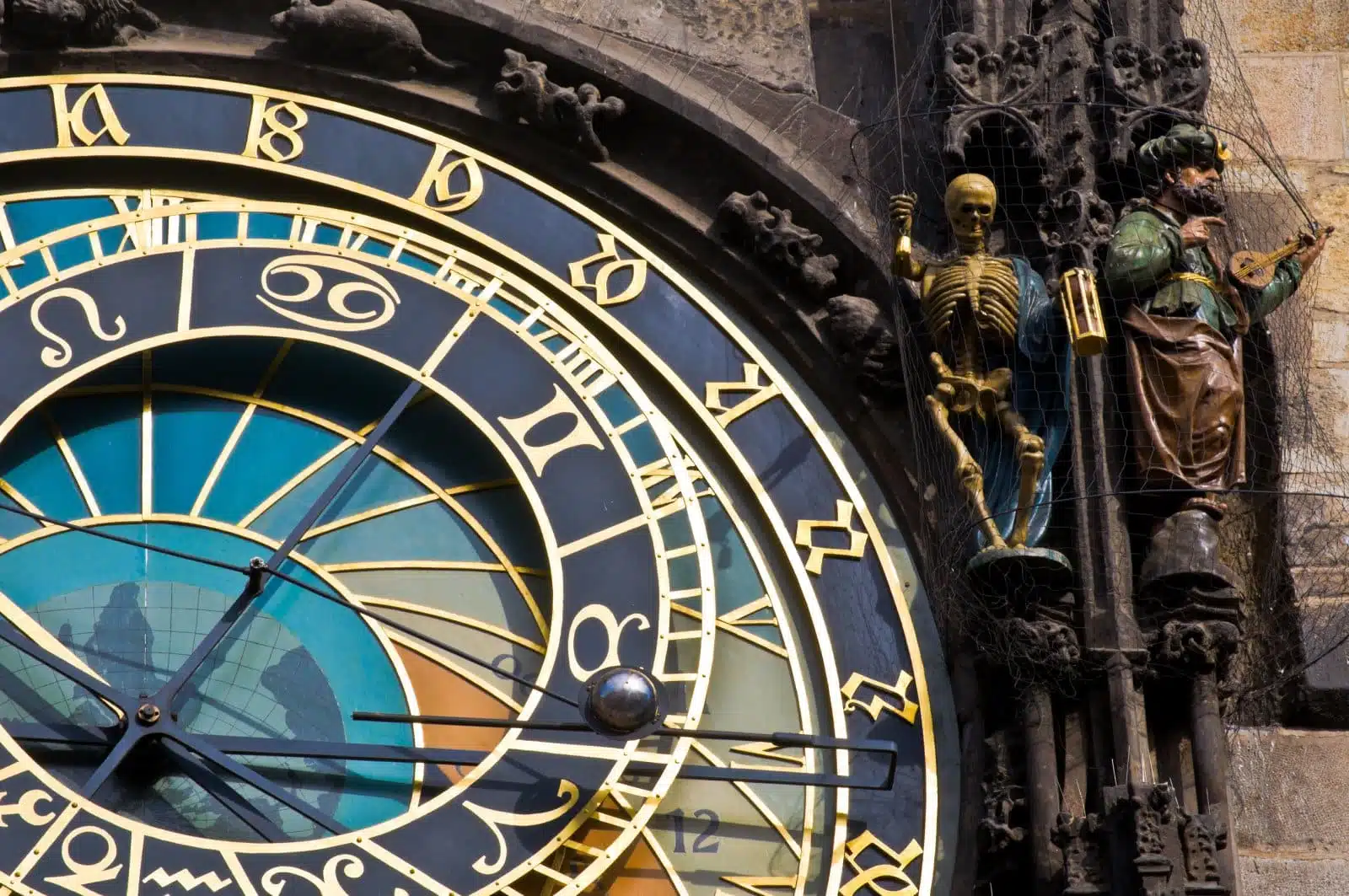
Image Credit: Shutterstock / Jule_Berlin
Prague’s history with alchemy and the occult dates back to the reign of Rudolf II, who turned the city into a haven for alchemists. The narrow streets of the Old Town are said to be lined with symbols pointing to the philosopher’s stone. The Speculum Alchemiae, a museum housed in a building that once served as an alchemical laboratory, reveals the city’s rich alchemical past through preserved laboratories and artifacts.
Insider’s Tip
Visit the museum’s underground tunnels, where alchemists once sought to turn base metals into gold.
When to Travel
Spring and fall offer mild weather and thinner crowds, ideal for exploring the city’s hidden corners.
How to Get There
The Speculum Alchemiae is located in the heart of Prague’s Old Town, within walking distance from the Old Town Square.
4. The Knights Templar of Tomar, Portugal
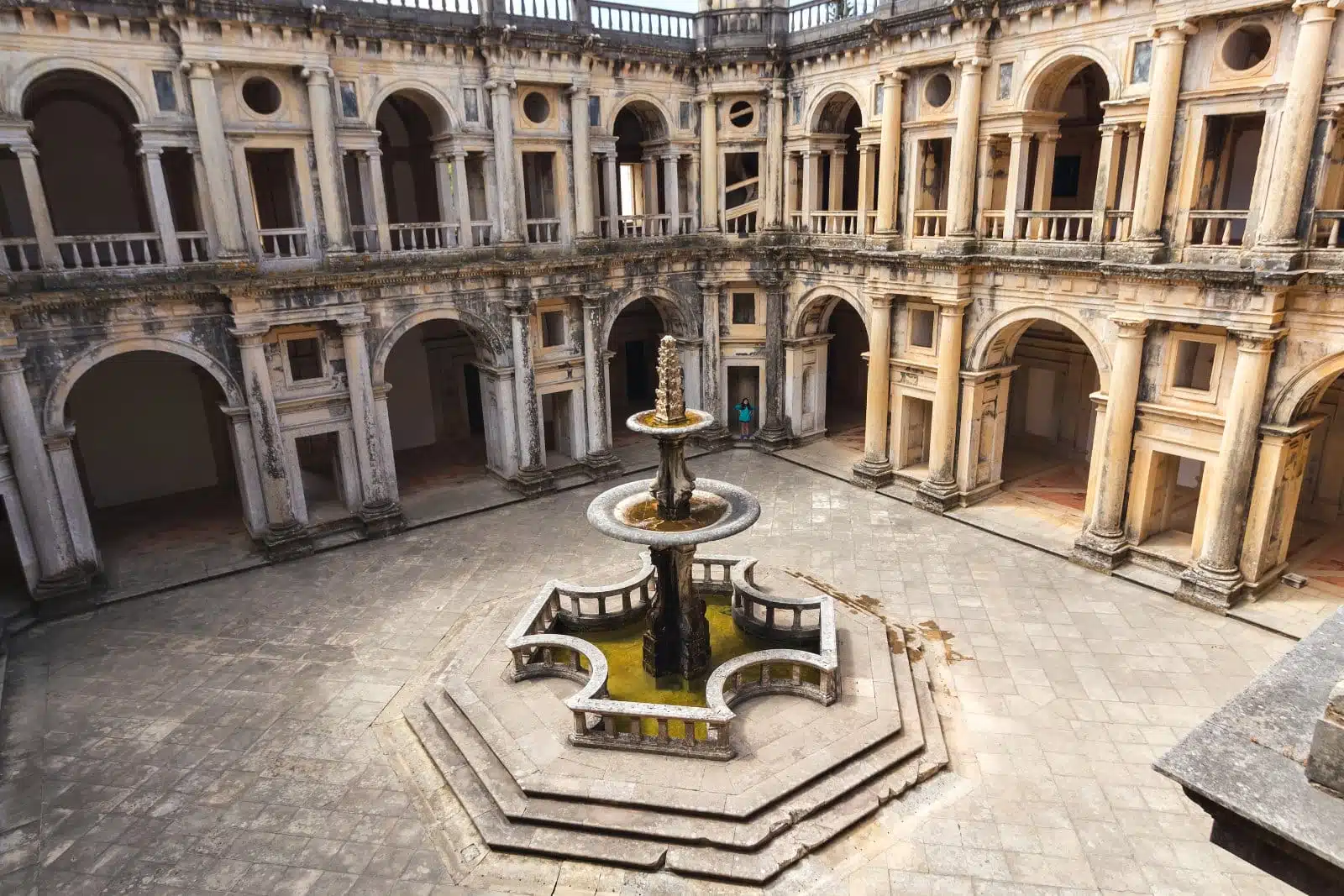
Image Credit: Shutterstock / Luis M. Vieira
The Convent of Christ in Tomar is a UNESCO World Heritage site and a former stronghold of the Knights Templar. This magnificent castle and convent complex is adorned with the Templars’ cross and other symbols of the order, offering a glimpse into the lives of these warrior monks. The architecture is a blend of Gothic, Renaissance, and Manueline styles, reflecting the evolution of the order into the Order of Christ, which played a crucial role in Portugal’s Age of Discoveries.
Insider’s Tip
Don’t miss the Charola, the original Templar oratory, with its unique octagonal structure.
When to Travel
Spring or autumn, to avoid the summer heat and crowds.
How to Get There
Tomar is about an hour’s train ride from Lisbon, making it an accessible day trip.
5. The Illuminati of Ingolstadt, Germany
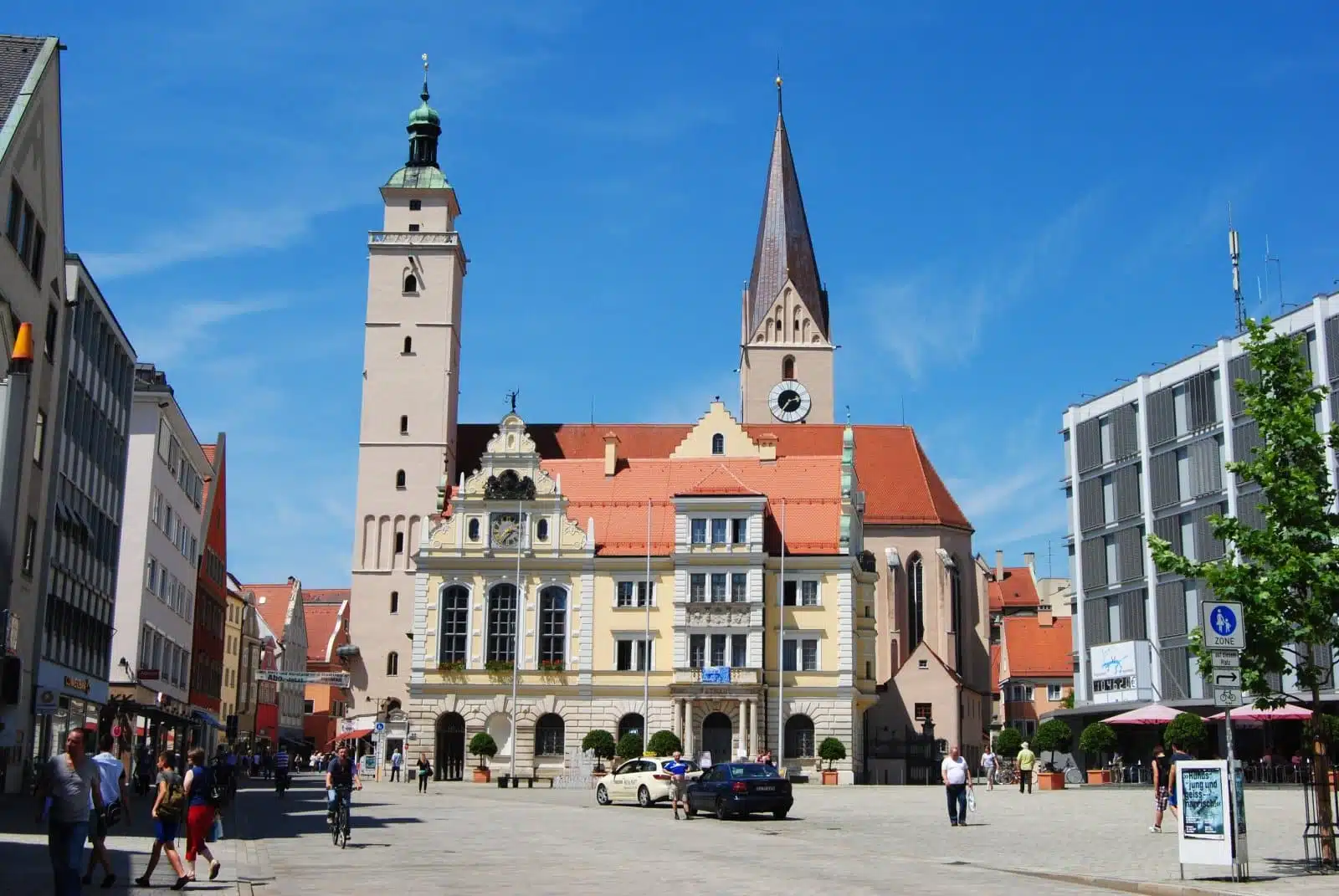
Image Credit: Shutterstock / Alizada Studios
Ingolstadt is the birthplace of the Illuminati, founded in 1776 by Adam Weishaupt. While much of the original evidence of the Illuminati’s existence in Ingolstadt has been erased or hidden, the city still holds clues to its Enlightenment-era quest for knowledge and opposition to superstition. The University of Ingolstadt, where Weishaupt taught, is a good starting point for those interested in the origins of this secretive society.
Insider’s Tip
Explore the old town for hidden symbols; local guides often know the best spots.
When to Travel
Late spring through early fall offers pleasant weather for walking tours.
How to Get There
Ingolstadt is easily reached by train from Munich, with a journey time of around an hour.
6. The Templar Fortress of Almourol, Portugal
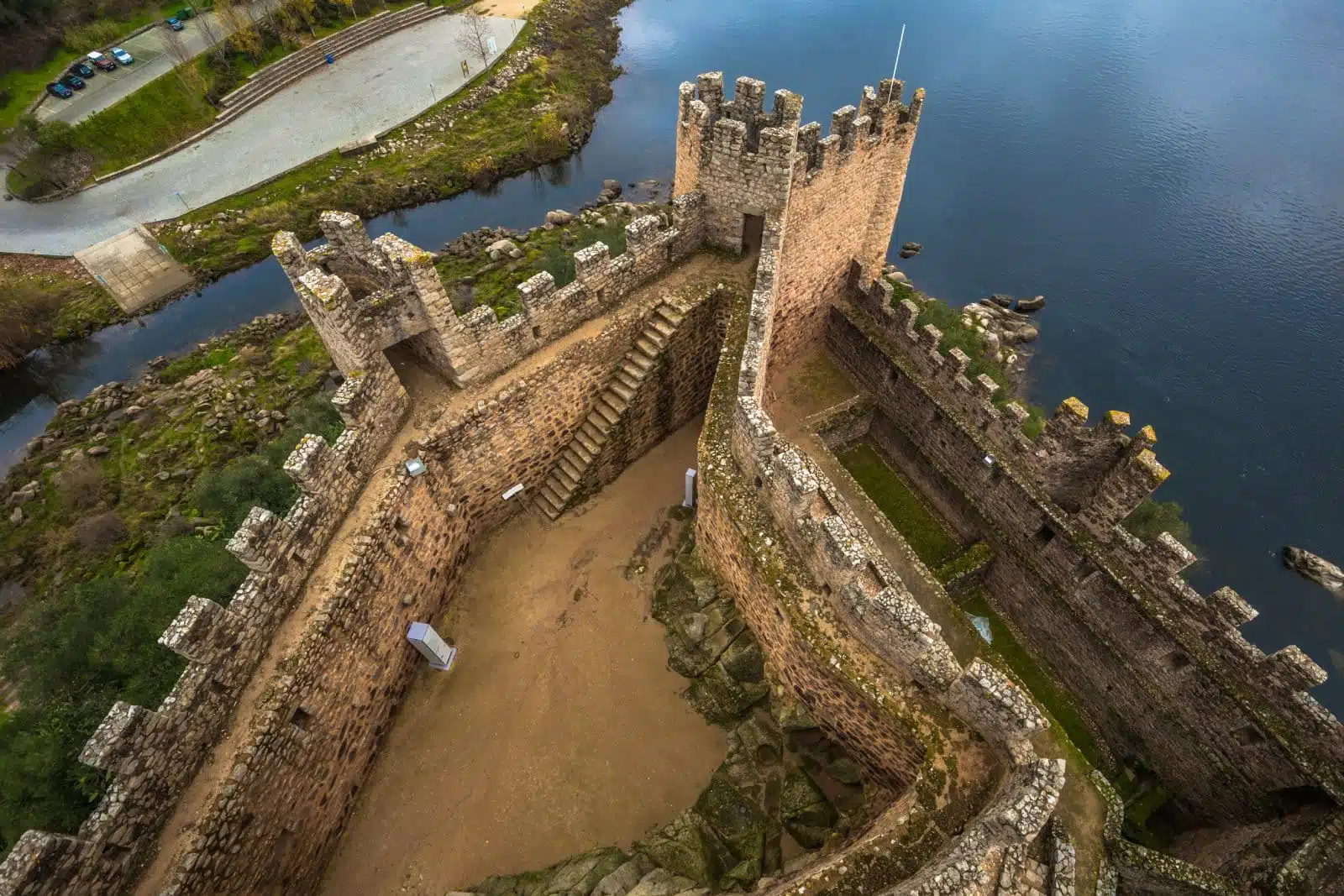
Image Credit: Shutterstock / RPBaiao
Perched on a small island in the middle of the Tagus River, the Castle of Almourol is one of Portugal’s most picturesque and enigmatic medieval fortresses. It is a testament to the Knights Templar’s influence in Portugal, embodying the mystique and military prowess of the order. The castle’s origins date back to the 12th century, and it is said to have been built on a site once sacred to Roman and Moorish cultures, adding layers of historical and mystical significance.
Insider’s Tip
Take the boat ride to the island for stunning views of the castle from the water, and plan your visit for early morning or late afternoon to avoid the midday heat and enjoy the site in a softer light.
When to Travel
April to June and September to October offer pleasant weather and fewer tourists, making these periods ideal for visiting.
How to Get There
Almourol is accessible by car or train from Lisbon, with the nearest train station in Tancos, followed by a short walk and a boat trip to the island.
7. The Freemason District of Paris, France
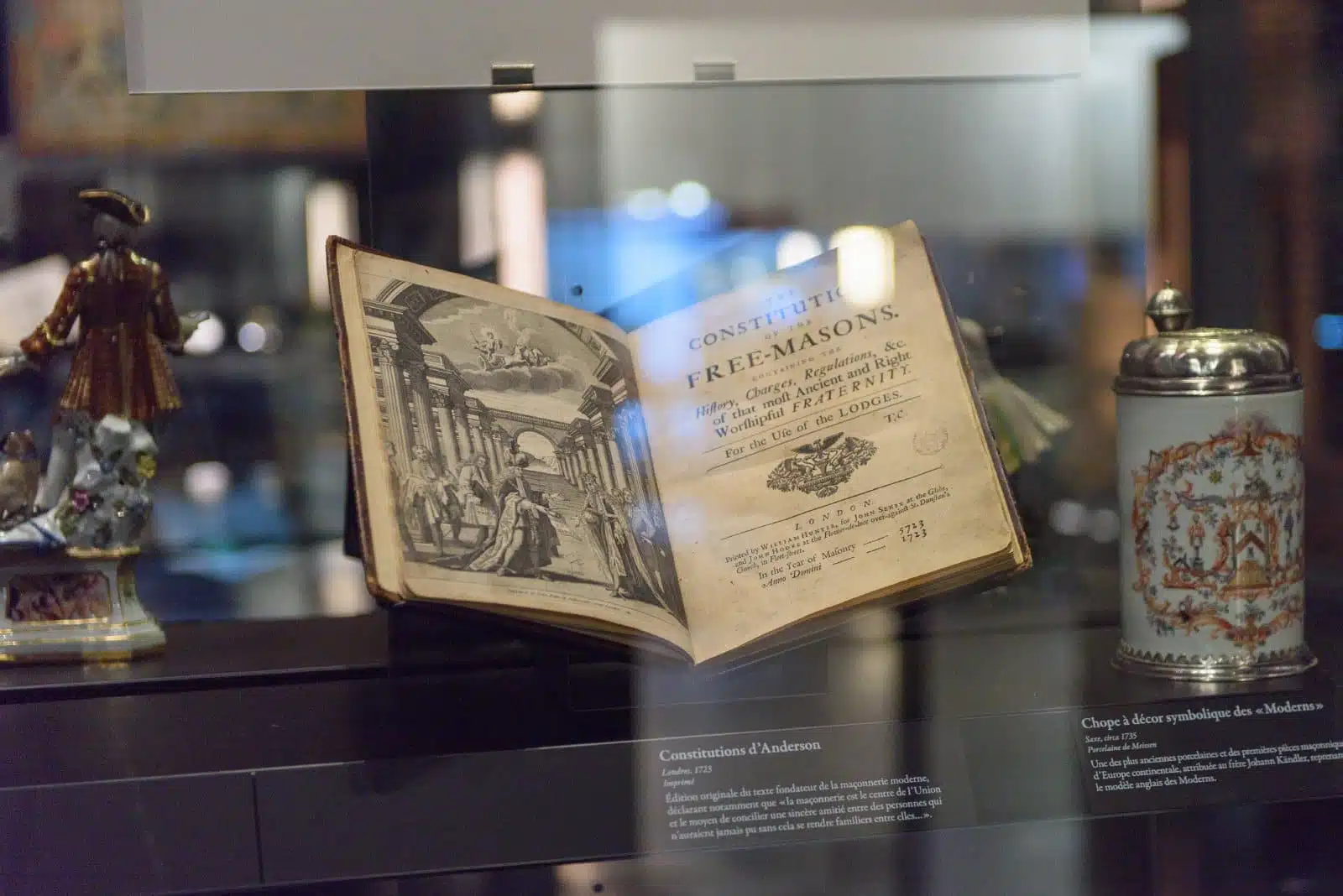
Image Credit: Shutterstock / Anton_Ivanov
Paris, a city with a deep and complex history of Freemasonry, contains numerous buildings and streets imbued with Masonic symbolism. The 9th arrondissement, in particular, is known for its Masonic influences, with symbols hidden in plain sight on the façades of buildings and in the streets’ layout. A guided tour can reveal the extent of these symbols, offering insights into the Freemasons’ philosophical and architectural impact on the city.
Insider’s Tip
Seek out the Square Louise-Michel for its overt and covert Masonic symbols, including the Statue of Liberty leading the people, which is said to have Masonic significance.
When to Travel
Paris is enchanting year-round, but spring and fall offer mild weather and the beauty of the city in bloom or adorned with autumn leaves, perfect for walking tours.
How to Get There
The 9th arrondissement is centrally located and easily accessible by Paris’s extensive metro system.
8. The Esoteric Tours of Turin, Italy
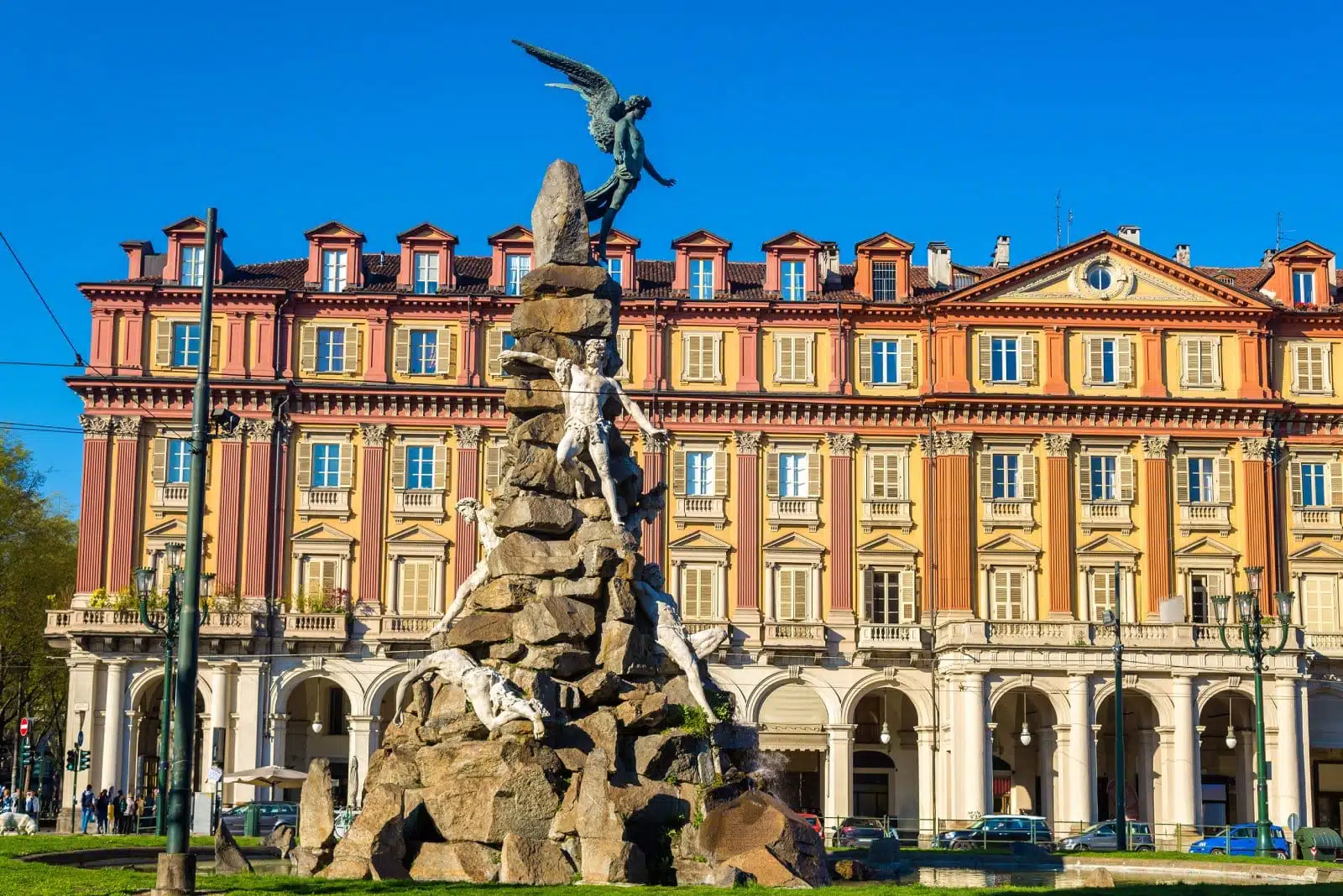
Image Credit: Shutterstock / Leonid Andronov
Turin is often cited as one of the world’s most magical cities, lying at the intersection of two supposed “power grids,” and is known for its black-and-white magic sites. The city’s layout and architecture are imbued with symbolism, from the Piazza Statuto, a dark magic site, to the Gran Madre di Dio, a church associated with white magic and said to be a gateway to the Holy Grail. Esoteric tours of Turin explore these sites, offering a glimpse into the city’s mystical past and present.
Insider’s Tip
Participate in a night tour to experience the mystical atmosphere of Turin’s esoteric landmarks under the cover of darkness.
When to Travel
Late spring and early fall offer comfortable temperatures for nighttime explorations.
How to Get There
Turin is well-connected by train and air to major Italian and European cities, making it easily accessible for visitors.
9. The Sintra Mysteries, Portugal
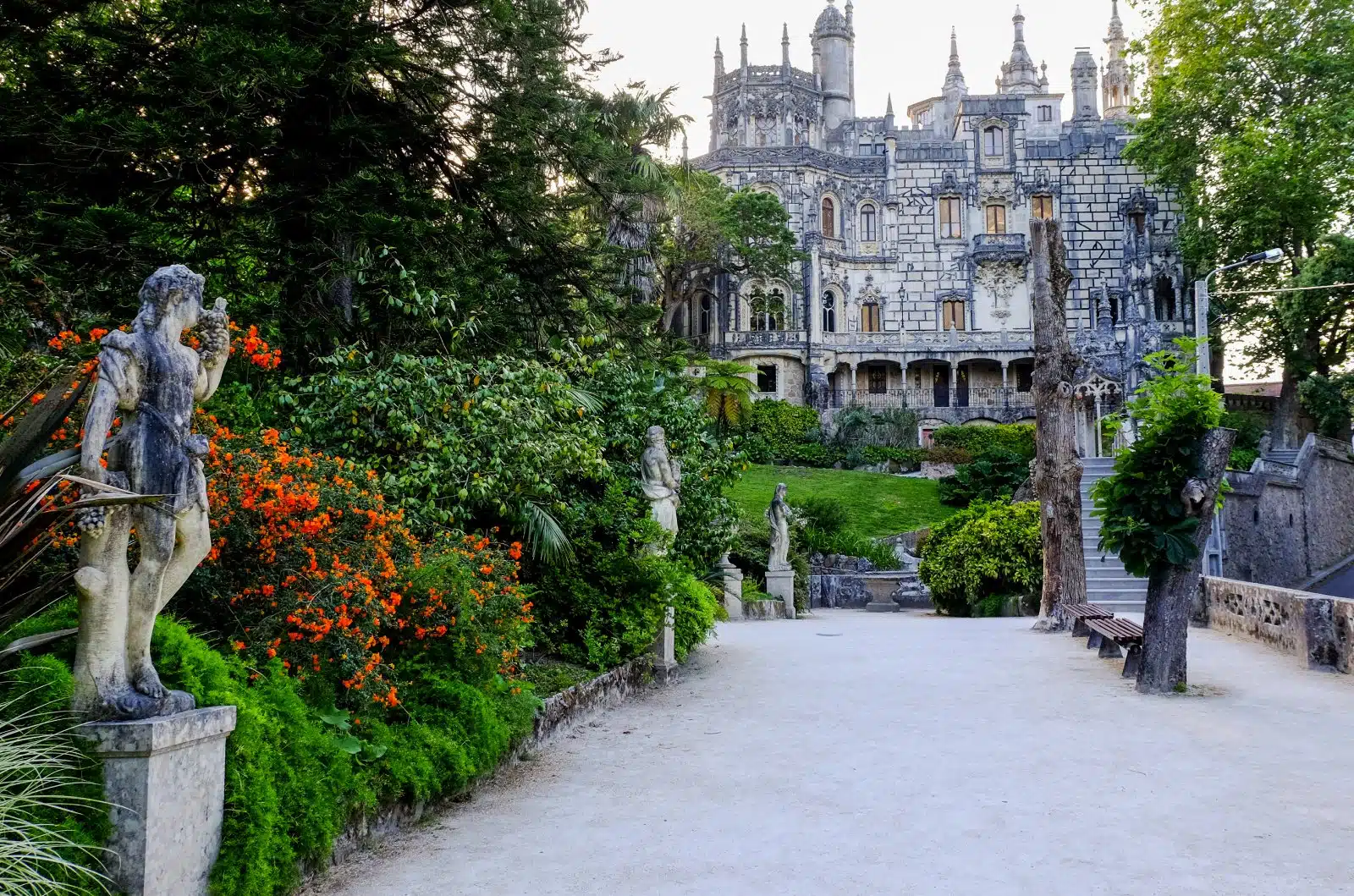
Image Credit: Shutterstock / Aureliy
Sintra, with its lush landscapes and fairy-tale palaces, has long been a site of mystical significance. The Quinta da Regaleira, in particular, is a nexus of esoteric symbols and structures, including the Initiation Wells, which are said to be used for Masonic ceremonies. The property blends Gothic, Egyptian, Moorish, and Renaissance influences, each layer adding to its mystical allure.
Insider’s Tip
Descend into the Initiation Wells for a truly immersive experience of the site’s mystical dimensions, but be sure to wear comfortable shoes for the damp and uneven steps.
When to Travel
Avoid the summer crowds by visiting in spring or fall, when the weather is pleasant and the gardens bloom or display their autumn colors.
How to Get There
Sintra is a short train ride from Lisbon, making it an easy day trip for those based in the capital.
10. The Knights Templar of Segovia, Spain
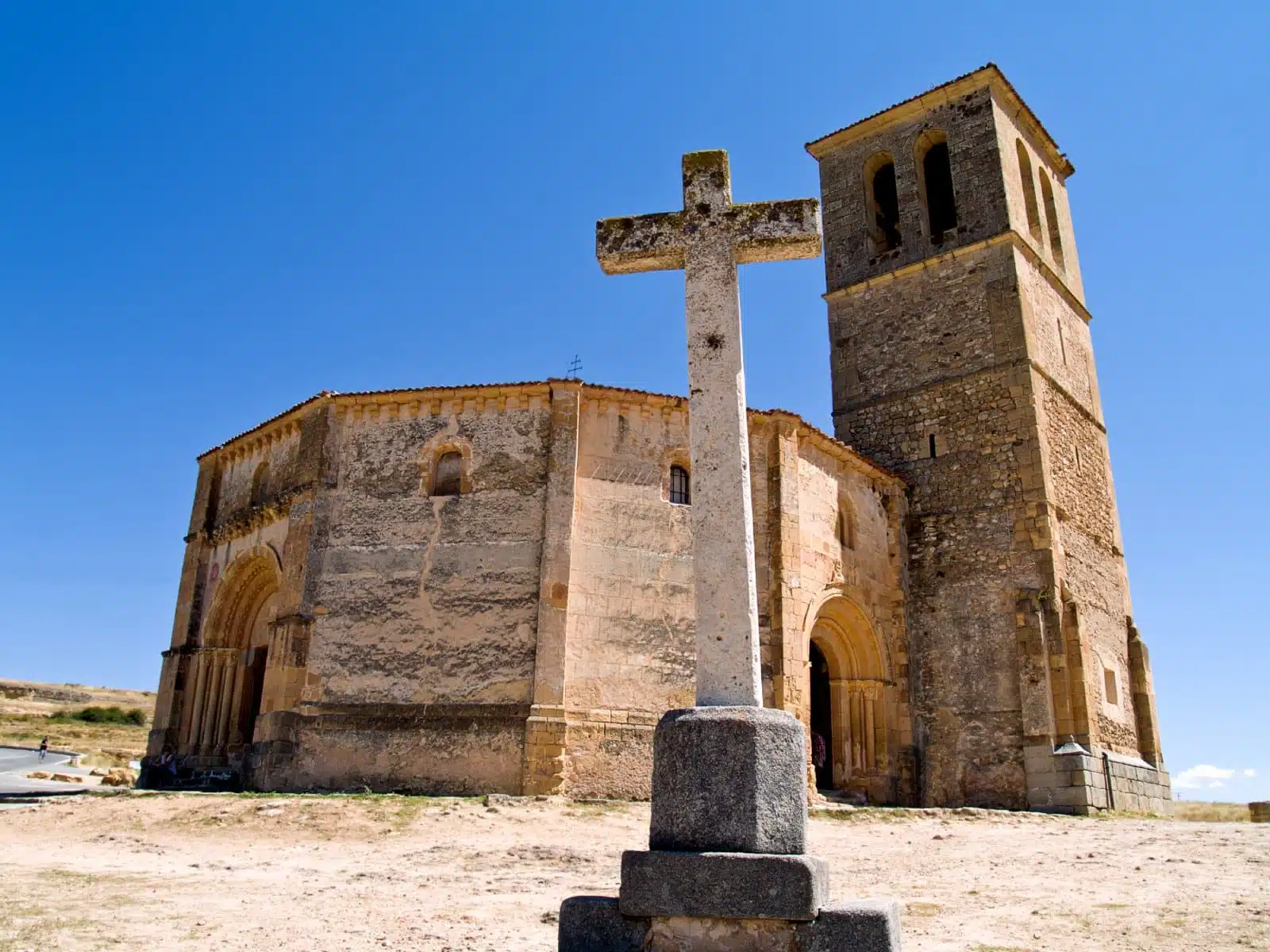
Image Credit: Shutterstock / Neirfy
The ancient city of Segovia is rumored to have been a significant site for the Knights Templar, who are said to have built several structures in the area, including the famous Alcázar of Segovia. With its distinctive ship’s bow shape, this fairy-tale castle is believed to contain hidden Templar symbols and serve as a strategic military and spiritual stronghold for the order.
Insider’s Tip
Explore the Alcázar’s lesser-visited rooms and corridors for hidden symbols and architectural anomalies that hint at the Templar presence.
When to Travel
Late spring and early autumn offer the best combination of pleasant weather and lighter tourist traffic.
How to Get There
Segovia is easily accessible by high-speed train from Madrid, making it an ideal destination for a day trip.
11. The Rosicrucian Enclaves of Amsterdam, Netherlands
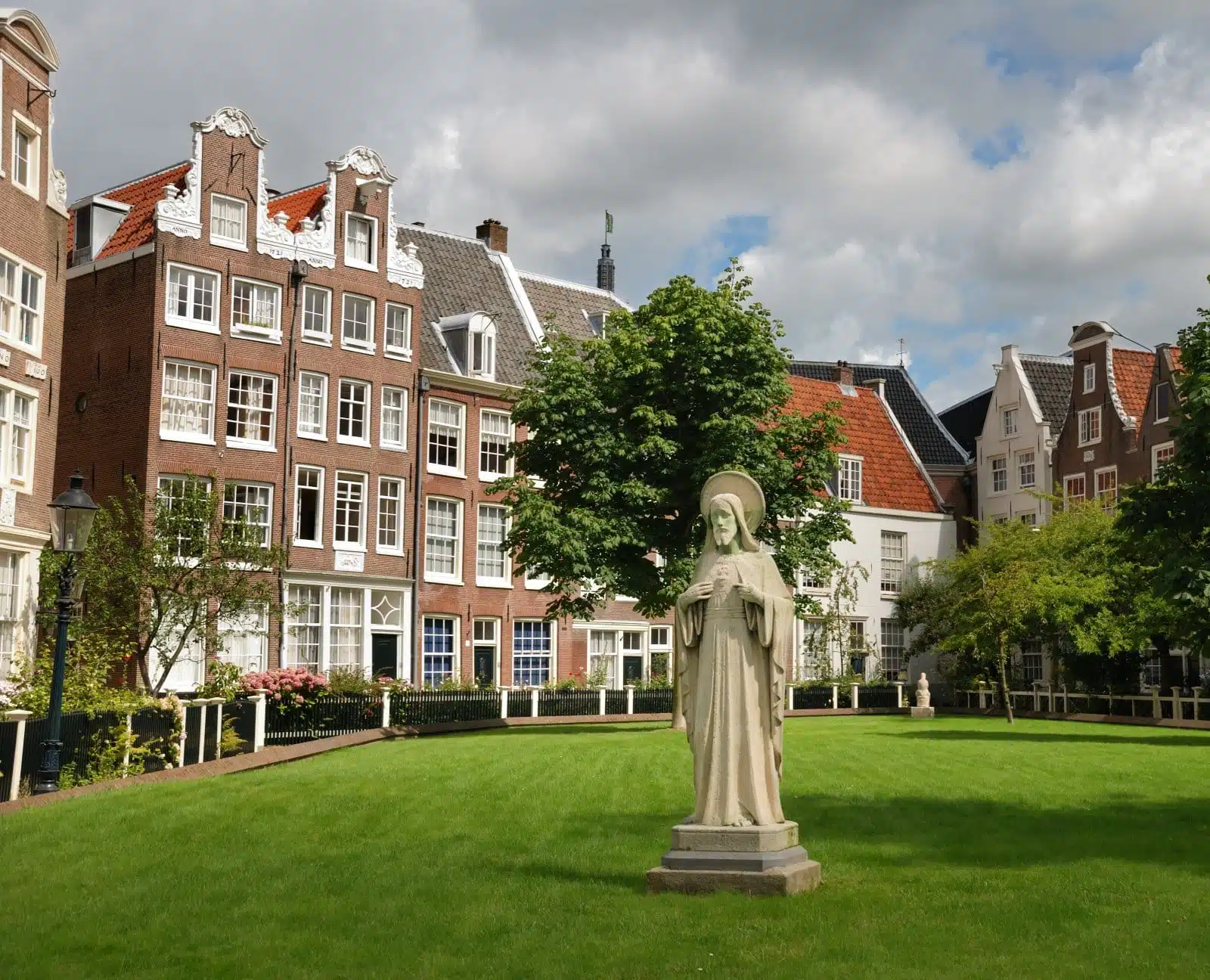
Image Credit: Shutterstock / Nikonaft
Amsterdam’s history with the mystical and secretive Rosicrucian order is often overlooked. The Bibliotheca Philosophica Hermetica, also known as the Ritman Library, houses one of the world’s most extensive collections of Hermetic literature, including works on alchemy, mysticism, Rosicrucian texts, and more. This library offers a unique insight into the esoteric traditions that influenced European thought.
Insider’s Tip
Check the library’s schedule for public lectures and exhibitions, which offer deeper dives into the esoteric traditions and their influences on art and culture.
When to Travel
Amsterdam is beautiful in spring and fall, with fewer tourists and a vibrant cultural scene.
How to Get There
The library is located in the heart of Amsterdam, easily reachable by the city’s excellent public transportation system.
12. The Occult Secrets of Vienna, Austria
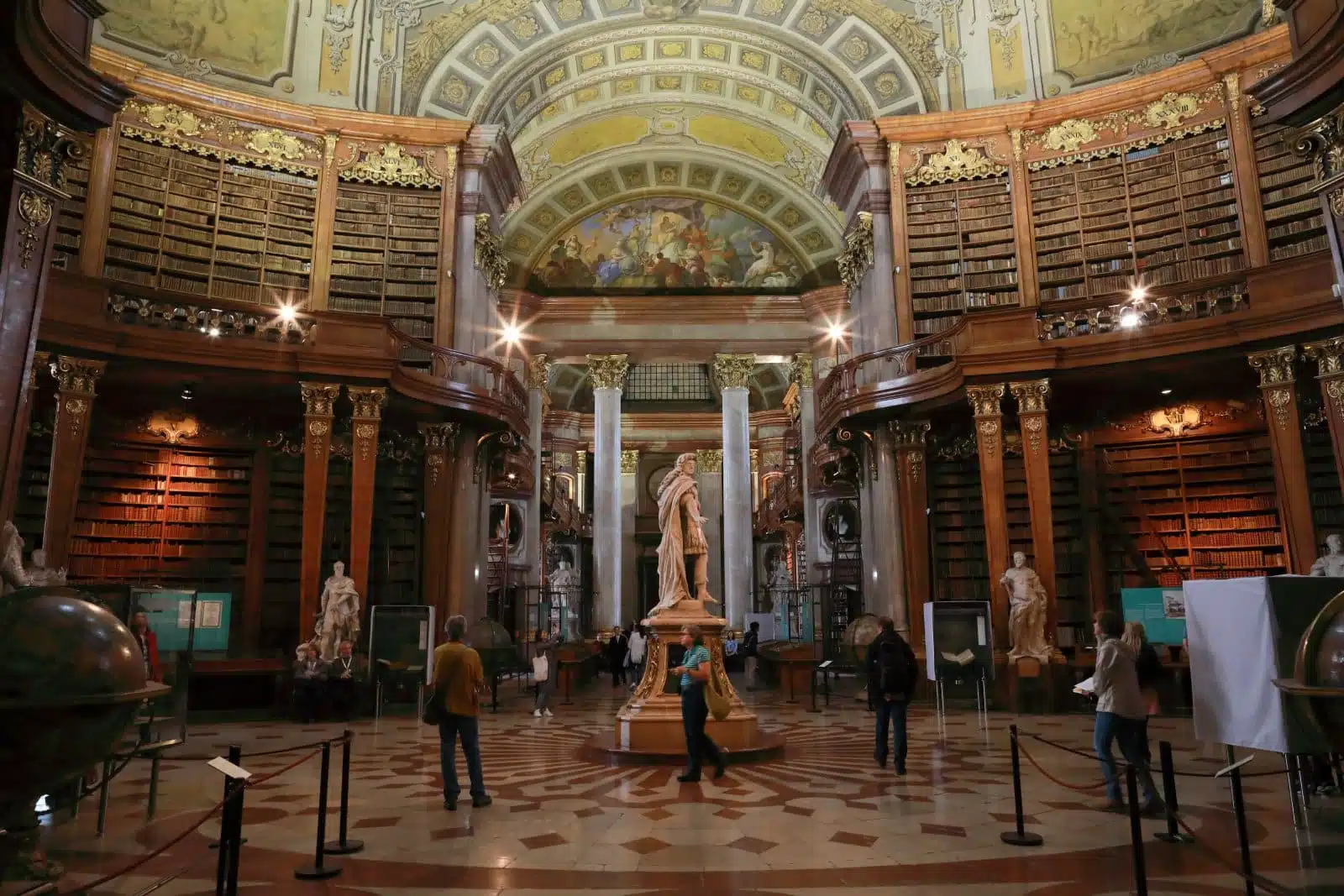
Image Credit: Shutterstock / Nazar Skladanyi
Vienna, a city as renowned for its classical music and architecture as for its secretive past, holds many occult secrets. The Austrian National Library, with its extensive collection of magical and esoteric texts, offers a glimpse into the occult interests of the Habsburg dynasty. Furthermore, Vienna’s streets and buildings are dotted with symbols linked to Freemasonry and other secret societies, reflecting the city’s deep historical layers of mysticism and power.
Insider’s Tip
Visit the National Library’s Occult Section for a guided tour, which must be arranged in advance, to uncover the hidden lore of the Habsburgs and their obsession with the occult.
When to Travel
Vienna is enchanting in the winter, especially during the Christmas season, but for those interested in exploring its occult history, spring and fall provide comfortable weather and fewer crowds.
How to Get There
Vienna is well-connected by air and rail to major cities across Europe, making it an accessible hub for those intrigued by its mystical past.
The Bottom Line
Europe’s cities are veiled in layers of history, with secrets hidden in their streets, buildings, and landscapes. For the intrepid explorer, seeking out the marks of secret societies offers a journey into the heart of the continent’s mystical and esoteric traditions. From the Templar strongholds of Portugal to the alchemical corners of Prague, each site offers a portal into a world where the spiritual, the mystical, and the quest for knowledge converge. As you trace these hidden paths, remember that the journey is a key to unlocking the mysteries that have captivated the human imagination for centuries.
More From The Green Voyage
Top 10 Trending Travel Destinations 2024
6 Essential Banking Apps for International Travel – Managing Your Finances on the Go
Traveling With Kids – 10 Tips to Create Memorable Family Holidays
The post 12 Secret Societies and Where to Find Their Marks in Europe’s Cities 2024 first appeared on The Green Voyage.
Featured Image Credit: Shutterstock / DavideAngelini.
For transparency, this content was partly developed with AI assistance and carefully curated by an experienced editor to be informative and ensure accuracy.
